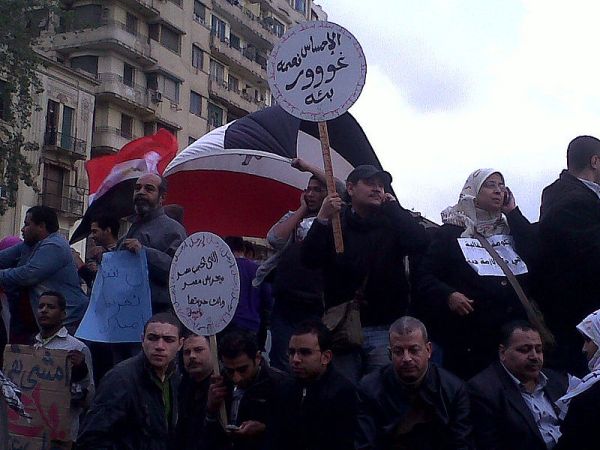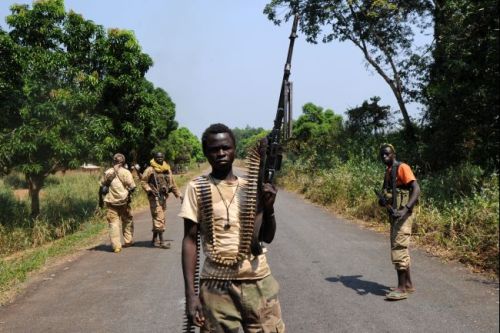
Credit WikiCommons
Human rights groups in Egypt have expressed concern in light of a new protest law put in place on Sunday. The law gives security forces free reign to use unnecessary forces against demonstrators.
It also prohibits protests without prior police approval. Egypt’s interim Prime Minister Hazem Beblawi said the new law requires protesters to give notice rather than seek permission.
International concern is rising due to demonstration being presented as a “crime punishable by law” in a country that “has become a nation of protesters”, according to BBC correspondent, Orla Guerin, in Cairo.
Hassiba Hanj Sahraoui, Middle East and North Africa deputy director at Amnesty International said “It is a dangerous sign that the first piece of legislation regulating rights and freedoms passed since the ousting of Mohamed Morsi curtails freedom of assembly and treats peaceful protesters like criminals”.
“Not only does it allows the police to disperse peaceful demonstrations, but gives them the power to shoot protesters who pose no threat to the lives or safety of others” he added.
This has been viewed as a step backwards in improving Egypt’s human rights. Amnesty International believe “Instead of investigating the large number of killings of protesters since the ‘January 25 Revolution’ and punishing those responsible, the current government seems to be rewarding security forces for their excesses and providing them with further legal means to trample on rights.”
The law was signed in light of more protests on Monday when security forces fired tear-gas to disperse university students who had defied a new law that restricts demonstrations, the state news agency reported.
Students of Al-Azhar University and Assiut University in Assiut province, south of Cairo, staged a protest, chanting against the army and police in defiance of the new law.
Criminalising protesters is not the progressive answer to Egypt’s on-going problems according to 19 Egyptian organisations. In a joint statement, they said: “The draft law seeks to criminalise all forms of peaceful assembly, including demonstrations and public meetings, and gives the state free hand to disperse peaceful gatherings by use of force”.
The consul in the Egyptian embassy in Dublin, Mr. Abdul Atif, said: “The new law, regulating the right to protests, aims to organise the process itself. Some people agree and some people don’t like the idea of regulating the rights of protesters. In general political powers in Egypt believe that there should be a free right for demonstrators to express political views on what is going on in Egypt. Clearly, some political powers have taken advantage of the freedom of demonstration and used arms and violence. The law is being put in place in a bid to guarantee no arms or violence”.
There are, however, concerns the law may be misused. “The unfair protest law will be broken,” Ahmed Mahler told Reuters, whose April 6 movement helped lead the uprising against autocratic leader Hosni Mubarak in 2011.
Lilah Gafaar


